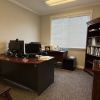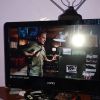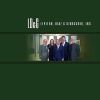- naturalization-basics — Understanding the purpose of the interview and how it works
- mistake-accuracy — Mistakes involving missing or incorrect information
- mistake-preparation — Errors caused by lack of study or preparation
- mistake-communication — Issues with communication, confidence, or clarity
- mistake-documents — Common documentation problems applicants overlook
- legal-support — When to seek professional help before the interview
1. Why the Naturalization Interview Matters
The naturalization interview is one of the most important steps in becoming a U.S. citizen. It is where applicants confirm their eligibility, demonstrate their English and civics knowledge, and answer detailed questions about their background. Because this appointment can shape a person’s entire future, it’s no surprise that many applicants feel nervous.
However, anxiety is not the main reason applicants fail. The real issue is that many people make avoidable mistakes during the naturalization interview—mistakes that can delay the process or even cause denials. Understanding the most common errors helps applicants approach the interview with clarity and confidence.
1.1 What USCIS Officers Look For
USCIS officers evaluate more than simple accuracy. They assess honesty, consistency, preparation, and overall understanding of the application. Even small discrepancies can raise concerns, which is why avoiding common mistakes is essential.
2. Mistake #1: Providing Incomplete or Incorrect Information
One of the most frequent mistakes applicants make in the naturalization interview is giving answers that do not align with the information on their N-400 application. Even small changes—such as a new address, updated employment, or travel dates—must match what is presented in the interview.
USCIS officers expect applicants to carefully review their applications before the interview. If the officer discovers mistakes that the applicant cannot explain, it may give the impression of carelessness or dishonesty.
2.1 A Real Example: Forgetting About a Short International Trip
A Boston applicant forgot to mention a two-day trip to Canada he took to visit family. He assumed it was too minor to matter. However, when the officer asked about his travel history, the omission caused confusion and delayed his approval. While the mistake was eventually corrected, it demonstrated how even short trips must be disclosed.
3. Mistake #2: Not Preparing for the Civics or English Tests
Many applicants underestimate how important it is to prepare for the civics and English portions of the naturalization interview. Although the USCIS study materials are clearly outlined, people often rely on guesswork or assume the questions will be easy.
The civics test covers U.S. history, government, rights, and responsibilities. The English portion checks reading, writing, and speaking abilities. Not preparing adequately is one of the simplest—but most damaging—mistakes applicants make in the naturalization interview.
3.1 Emotional Impact of Poor Preparation
Some applicants freeze during the interview because they are overwhelmed by the seriousness of the moment. One applicant from Los Angeles shared that she knew her study materials well, but nerves took over when the officer began speaking quickly. Better preparation—such as practicing with friends or using voice recordings—can reduce anxiety dramatically.
4. Mistake #3: Communication Issues During the Interview
Clear communication is essential. Applicants who speak too quietly, seem unsure, or offer inconsistent answers may cause unnecessary complications. USCIS officers pay attention not only to the accuracy of answers but also to clarity and confidence.
Some applicants misunderstand questions and attempt to answer anyway. This often leads to confusion. USCIS officers encourage applicants to ask for clarification when needed. It is entirely acceptable to say “Could you please repeat the question?” rather than guessing.
4.1 Cultural Differences and Miscommunication
Cultural norms can affect how applicants respond. In some cultures, making eye contact with authority figures is considered disrespectful. In the U.S., however, officers might interpret a lack of eye contact as uncertainty or avoidance. Small adjustments can make communication smoother.
5. Mistake #4: Missing Required Documents
Another common mistake applicants make in the naturalization interview is arriving without the necessary documents. USCIS provides clear instructions on what to bring, but applicants sometimes overlook items such as:
1. Permanent Resident Card 2. State ID or Driver’s License 3. Passports (current and expired) 4. Marriage certificates or divorce decrees 5. Tax returns and supporting financial records 6. Court documents, if applicable
Missing any of these can result in delays—or even rescheduling the interview entirely.
5.1 Real Case: The Missed Tax Transcript
A Chicago applicant was asked to provide proof of consistent tax filing. He brought his W-2s but forgot his tax transcripts. The officer allowed him to mail them afterward, but his approval was delayed by months. This situation could have been avoided with a simple checklist.
6. Mistake #5: Not Seeking Legal Help When It’s Needed
Some applicants have complicated immigration histories, past legal issues, long absences from the U.S., or errors on their applications. These situations require professional guidance. One of the most serious mistakes applicants make in the naturalization interview is believing they must handle everything alone.
A knowledgeable attorney can review forms, identify risks, and prepare applicants for the interview. This reduces surprises and helps applicants answer questions with confidence.
If you are uncertain about any part of your application—or if your history includes anything complex—Fred Miller Lawyer can provide personalized guidance to help you navigate the process smoothly and avoid costly errors.
Understanding the most common mistakes applicants make in the naturalization interview is the first step toward a successful citizenship process. With preparation, clarity, and the right support, applicants can approach the interview with confidence and increase their chances of approval.


 ascent law reviews
ascent law reviews victoria campos attorney
victoria campos attorney covington law firm washington
covington law firm washington living trust lawyer reno
living trust lawyer reno heidari law group los angeles
heidari law group los angeles 1551 north tustin avenue santa ana
1551 north tustin avenue santa ana